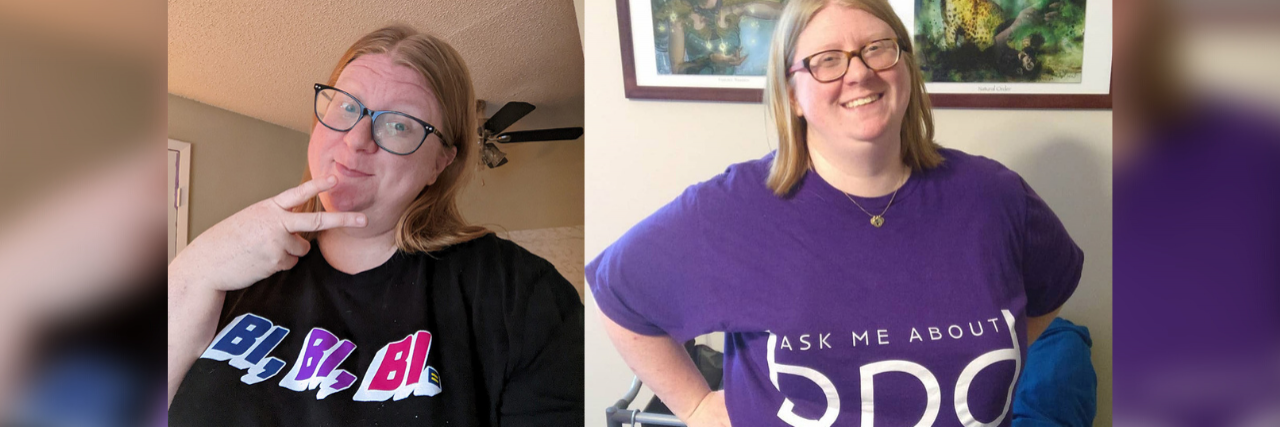The Intersection of Being a Bisexual Woman With Borderline Personality Disorder
A few weeks ago, I stumbled across a research study about people with borderline personality disorder (BPD) within the LGBTQIA+ community. It really made me stop and think because, although I am a bisexual woman who also had a BPD diagnosis for years, I had never really connected the ways in which those two aspects of my identity correlate. However, as I read through the study and thought about my life, I realized these two aspects of my identity coincide in the most painful ways.
Living as a bisexual woman comes with its fair share of rejection and ridicule. People have distanced themselves from me upon learning my sexuality, while others have simply denied the validity of bisexuality. I’ve received emails filled with “fire and brimstone” religious ramblings and social media comments about my “lifestyle choices.” I even lost decade-long friends from college after I made the decision to “officially come out” in my late 20s.
The same thing happened with my borderline personality diagnosis — people either ran for the hills because of the attached stigma or questioned the validity of my treatment team’s assessment. Complete strangers on the internet said I’d be better off dead and used words like “monster” and “evil” to describe me. Even friends I met who also live with mental health conditions have weaponized my diagnosis or used it as an excuse to belittle me years into my recovery.
As you can imagine, this type of treatment regarding multiple aspects of my identity merely fuels my severe fear of abandonment, unstable sense of self, and suicidal ideation. There have been days when I wished I could simply “choose to be straight” or “stop being borderline,” but of course, it’s not possible to simply discard yourself like a pair of old socks.
For better or worse, both of these parts of my identity aren’t things I chose to live with, which means I can’t just toss them out. (Believe me, I tried.)
However, in true Marsha Linehan fashion, I don’t think that living with BPD and being a part of the LGBTQIA+ community is an entirely bad thing, either. In fact, I think that for all the pain and problems these aspects of myself create, they also bring a lot of light to my life.
For example, I think that both of these “labels” have helped me connect with people who have truly enriched my life. Because people with borderline personality disorder face a significant amount of judgment and ridicule, they frequently find ways to band together as a community and care for each other. I’ve seen it happen across social media platforms and right here in the BPD Safe Zone group. The same thing occurs within the LGBTQIA+ community like within the local lesbian bar my partner and I frequent. For all the rejection and abandonment I’ve faced, I’ve also counteracted it within these amazing, safe spaces.
I have also found that embracing these aspects of myself has ultimately helped me live a more authentic, fulfilling life. Hiding who I am felt necessary for so long, but it was emotionally draining and the cognitive dissonance caused severe emotional distress. Now that I’ve learned to accept myself entirely, I feel lighter and happier than ever before, and it’s really an amazing experience.
You may not fit into both of these communities I mentioned, but I think that many of us experience these dichotomies of “good and bad” or “darkness and light” within many aspects of our identity. And although it can cause pain and distress at times, I also think that embracing who we are can ultimately bring us joy — but you have to be willing to show up for yourself day in and day out. Because, as Brené Brown says, “You are imperfect, you are wired for struggle, but you are worthy of love and belonging…” even if you are a queer person with BPD, like me.

